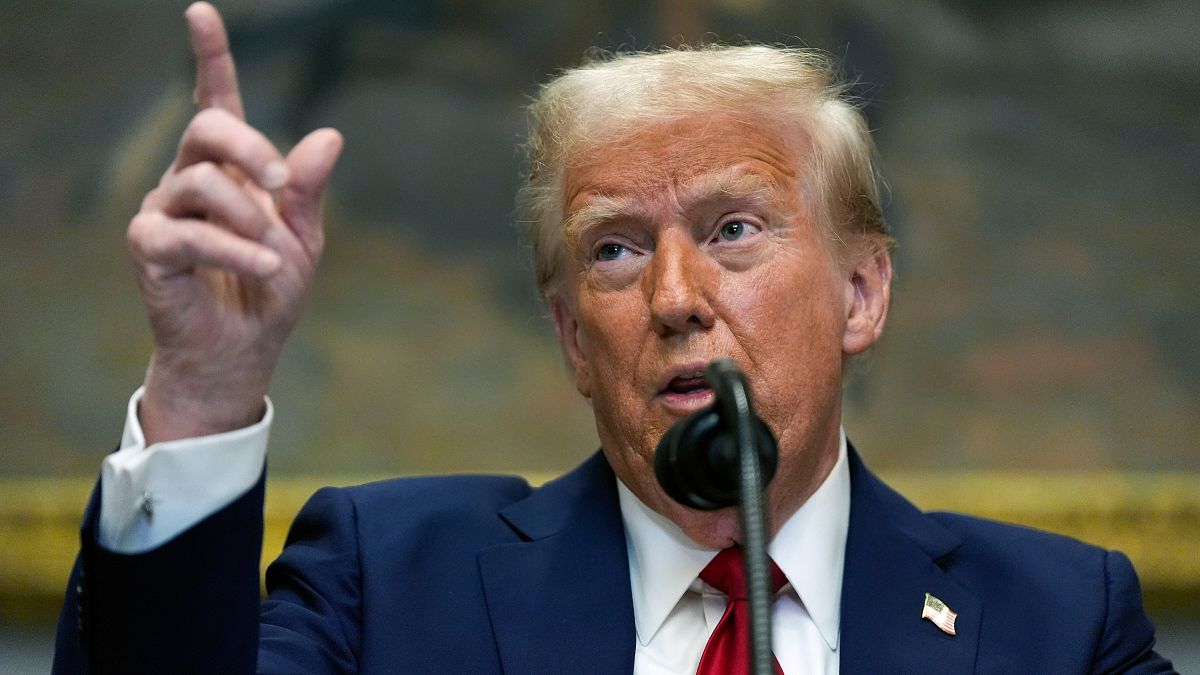Zelenskyy’s diplomatic play for Trump
Kyiv knows that it will have to recalibrate and take care not to get on Trump’s bad side, hence Zelenskyy’s emphasizing the importance of exploring diplomatic solutions.
U.S. President-elect Donald Trump’s nomination of Keith Kellogg, a former national security adviser and decorated retired U.S. general, to be his special envoy to Ukraine and Russia has reassured a nervous Kyiv up to a point.
Ukrainian officials are familiar with Kellogg, a peace-through-strength advocate who’s argued publicly that any deal to end the nearly three-year-long war of attrition would have to include solid security guarantees for Ukraine to ensure there’s lasting peace and to preclude another Russian invasion. Kellogg is no supporter of just throwing in the towel and letting Russia’s Vladimir Putin get everything he wants.
“We tell the Ukrainians, ‘You’ve got to come to the table, and if you don’t come to the table, support from the United States will dry up’,” Kellogg told Reuters in June. “And you tell Putin, ‘He’s got to come to the table and if you don’t come to the table, then we’ll give Ukrainians everything they need to kill you in the field’,” he added.
And unlike others in Trump’s MAGA circle, Kellogg welcomed President Joe Biden’s decision to approve Ukraine’s use of U.S.-supplied long-range missiles to strike targets inside Russia, saying it has given Trump “more leverage” and adding that “it gives President Trump more ability to pivot from that.”
Contrast that with the howls of protest over the missile approval from Donald Trump Jr., Mike Waltz, the president-elect’s choice to be national security adviser, and Richard Grenell, who was acting director of National Intelligence during Trump’s first term. “No one anticipated that Joe Biden would ESCALATE the war in Ukraine during the transition period. This is as if he is launching a whole new war,” Grenell posted on X. Trump’s son accused Biden of trying to spark World War III “before my father has a chance to create peace and save lives.”
In short, Kellogg is someone Ukrainian President Volodymyr Zelenskyy and his circle can work with, and Ukraine’s leader already is nimbly adapting to the changed politics in Washington — and to shifting political dynamics in Europe — by displaying a willingness to come to the table. That’s something his American advisers have urged him to do, leaving it to Putin to be Mr. Nyet, risking Trump’s wrath.
That is exactly what Zelenskyy was doing on Friday in an interview with Britain’s Sky News. It was a master class in smart diplomatic maneuvering, what with the teasing suggestion of how to end the “hot phase of the war” with Ukraine being admitted into NATO but with the alliance’s umbrella only applying to the 80 percent of the country still controlled by Kyiv. That would leave Ukraine free later to resolve diplomatically what happens to the occupied part of the country, he suggested.
Under this formula, Russia would retain de facto control of the Donbas and Crimea but without Kyiv recognizing their annexation or officially ceding territory — which would require a change in Ukraine’s Constitution, a move that no doubt would enrage front-line soldiers and a large number of Ukrainians. One of his American advisers recently told POLITICO that he doubted Zelenskyy could survive politically if he wrote off nearly a quarter of the country.
The Sky News interview is the farthest Zelenskyy has gone in suggesting Kyiv might be ready to give up any territory, temporarily or otherwise. In an interview with Le Monde in the summer, he did hazard that the occupied territories could join Russia if they voted to do so in a referendum conducted freely and fairly. But for that to happen, the areas would have to be back in Ukrainian hands for such a vote to take place, he added.
Whether Zelenskyy’s latest idea might fly is another matter entirely.
Trump is even less likely to endorse NATO membership for Ukraine than a reluctant Biden has been. There would be legal issues on how the alliance’s collective defense pledge wouldn’t apply to occupied parts of Ukraine. And Putin and his top aides have made it clear time after time that they’ll never agree to Ukraine joining NATO. Just the suggestion is a red flag to a raging bull.
Arguably, though, that wasn’t really the point of what Zelenskyy was doing on Friday. The exercise seemed more intended to show a readiness to consider various options, with the Ukrainian leader making clear he wants to work one-to-one with Trump. “I want to share with him ideas and I want to hear from him,” Zelenskyy said.
Above all, Kyiv knows that it will have to recalibrate and take care not to get on Trump’s bad side, hence Zelenskyy’s emphasis on the importance of exploring diplomatic solutions, says former Ukrainian Foreign Minister Dmytro Kuleba. “Listen to his recent interviews in which he says, ‘we have to look for diplomatic solutions,’ ‘we have to return Crimea diplomatically,’ ‘we are not strong enough to restore our 1991 borders.’ These are all messages to Trump,” Kuleba told POLITICO.
The former minister predicts Trump will start moving rapidly to try to stop the war, but warns that “neither Zelenskyy nor Putin are interested in a quick solution because they both believe that will be achieved at their expense.”
Kuleba added: “Putin firmly believes he’s close to getting it all. So why should he agree to anything? The second problem is that if you listen carefully to Putin, he says he’s ready for a cease-fire, but not one that will be used to arm Ukraine. His demands will be not only territorial concessions and no NATO membership, but also basically no Ukrainian army. And that will undermine the whole idea of security guarantees.”
The trick for Zelenskyy in his dealings with Trump is to make sure it is Putin who gets the blame for any failed peace initiative.
What's Your Reaction?



















































